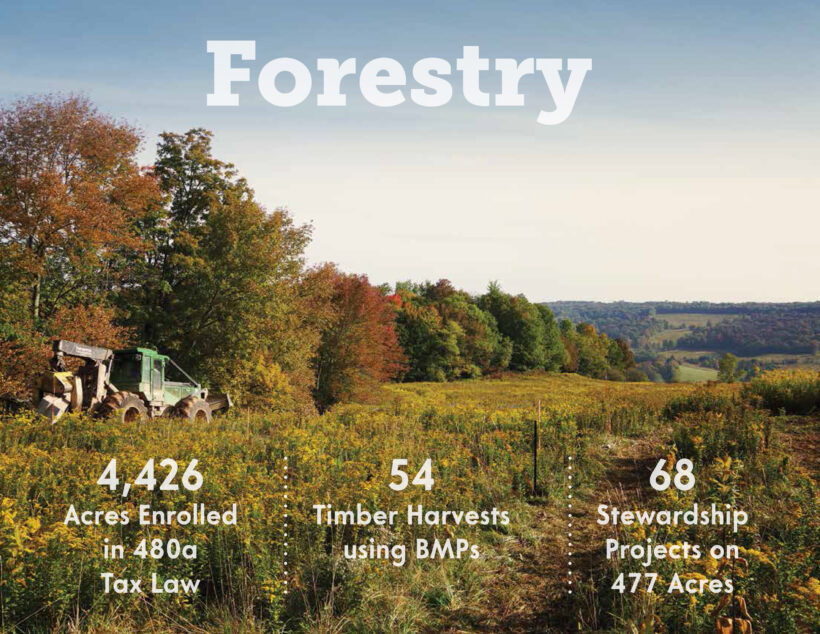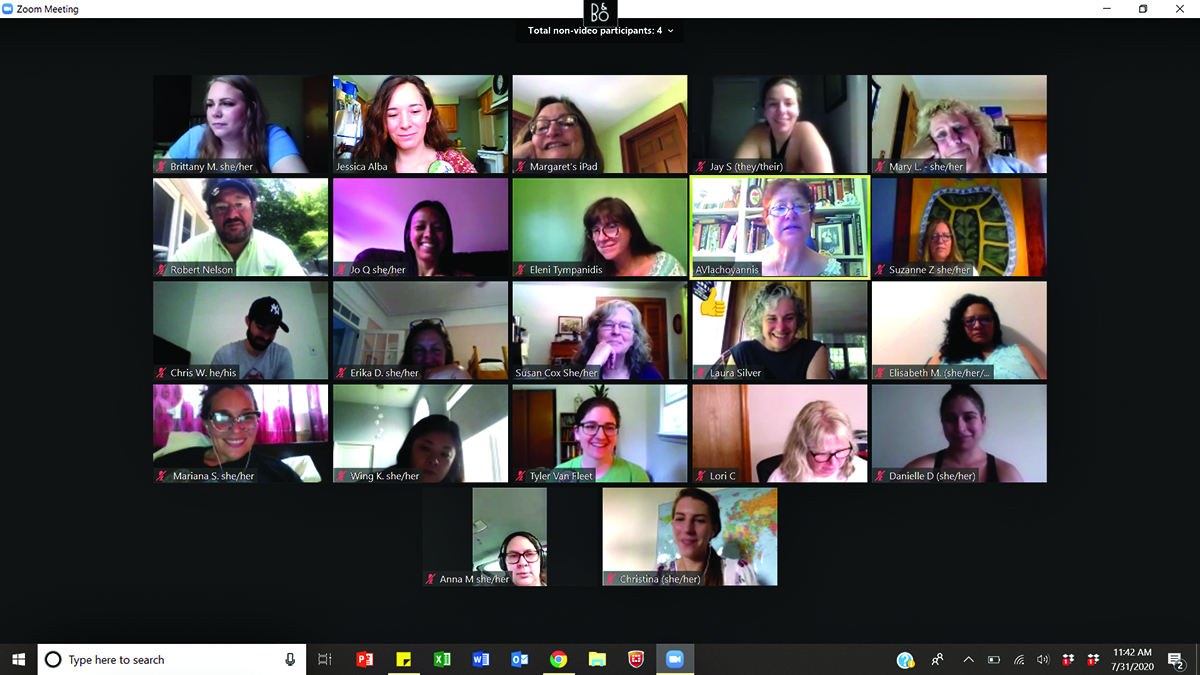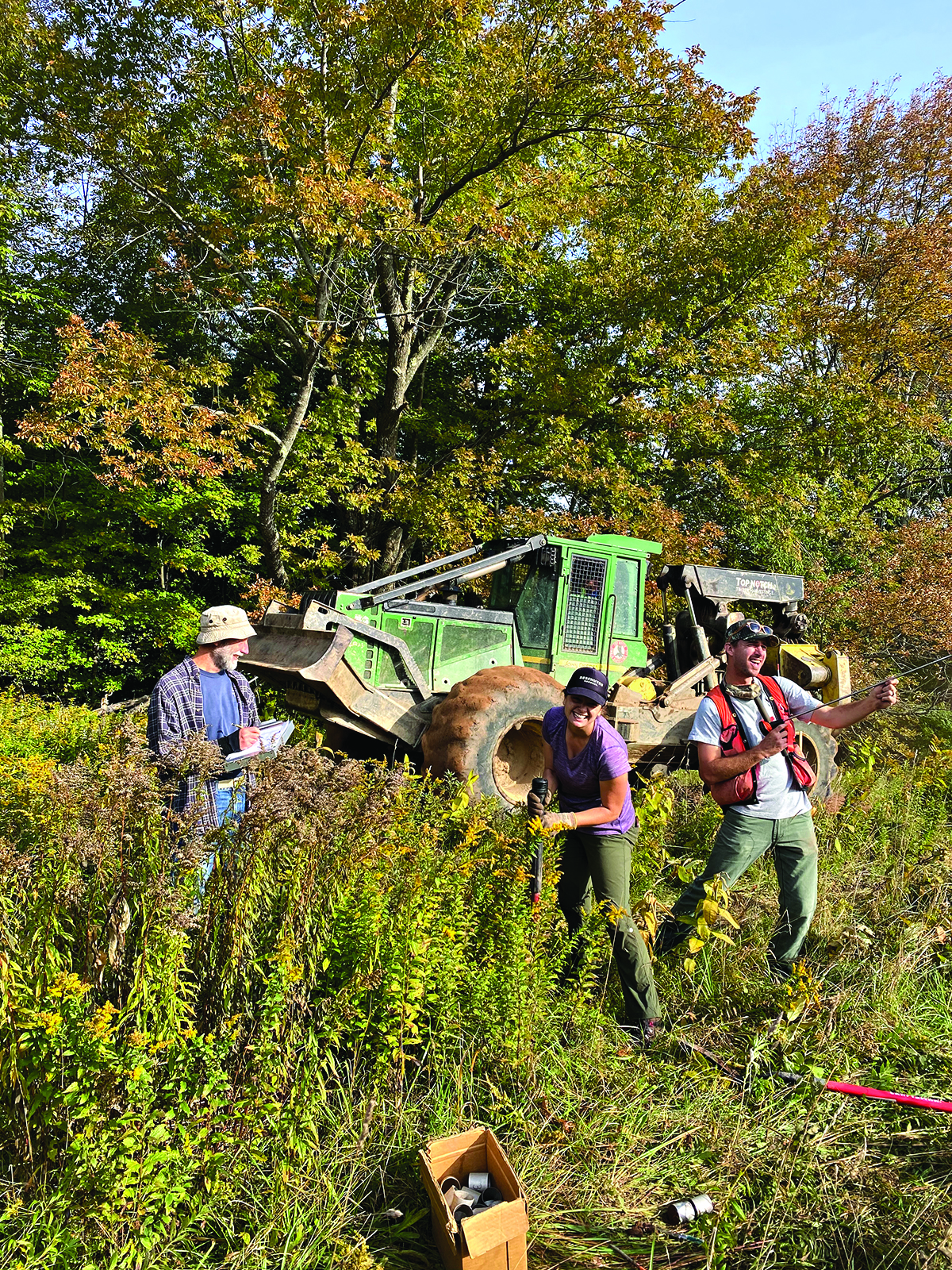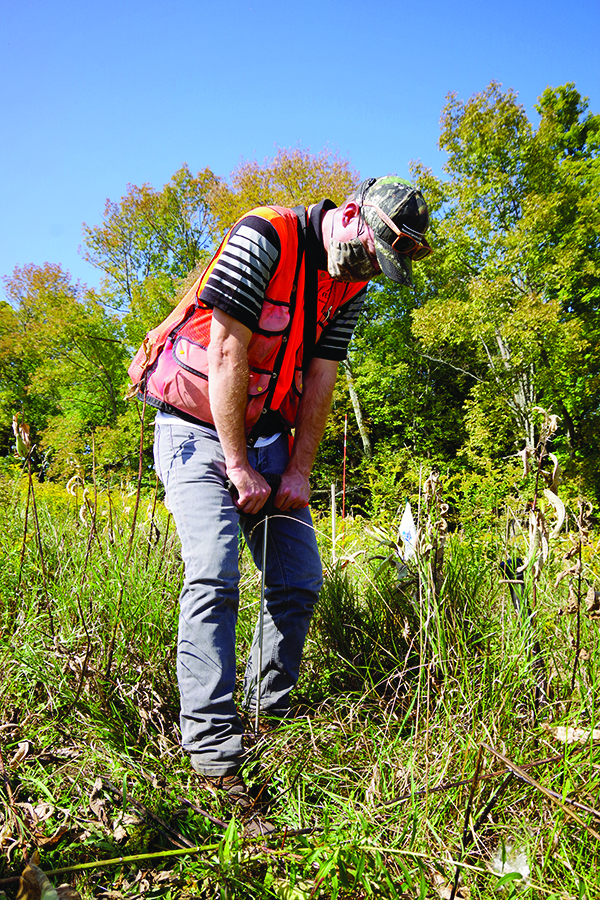This past year presented loggers, forest landowners and foresters in the NYC Watershed with unprecedented challenges. The Watershed Agricultural Council (WAC) Forestry Program adapted to meet these challenges with the help of our program participants. Over the past year the WAC helped 35 landowners enroll 4,426 acres in the 480a Forest Tax Law in the NYC Watershed. Through our Best Management Practices (BMP) Program, water quality BMPs were implemented on 54 timber harvests. The Management Assistance Program facilitated the implementation of 68 forest stewardship projects, effecting more than 477 acres of watershed forest. The Watershed Forestry Institute for Teachers hosted 25 teachers weekly, using virtual learning techniques over the course of a month. The Bus Tours and Green Connections programs were most affected by virus mitigation efforts within NYC. With the help of participating teachers, staff switched to virtual techniques for delivering educational curriculum to classrooms, providing a source of support for teachers as they transitioned their classroom activities to remote learning. 2020 was certainly a year of challenges, but every step of the way sta and participants met those challenges with creative and engaging solutions.
Watershed Forestry Institute for Teachers Goes Virtual
For the past 19 summers the Watershed Agricultural Council (WAC) has gathered teachers for five days in Upstate NY to explore the waters, forests and communities of the NYC Watershed at the Watershed Forestry Institute for Teachers (WFIT). In light of COVID-19, we decided to take our “summer camp for adults” virtual, but how do you translate five days in the woods to Zoom? Throughout July, we met online twice weekly with our 25 upstate and downstate teachers. Sessions included games, small group discussions, conversations with forestry, history and engineering experts, and time to plan how to incorporate watershed forestry into remote and hybrid teaching.
Much-loved in-person experiences had to be re-imagined: Can’t run a streamside forest filtration experiment? Mail the teachers supplies to build and test their own lters at home, then have them share and compare their filtration results by posting photos and videos online. Can’t tour reservoirs, forests and farms together? Build a Google Earth tour of the NYC Watershed and water supply system, and challenge the teachers to locate and document parts of the system near their homes then make a virtual collage using their photos and videos.
Despite the challenges of adapting to a virtual setting, the grit and pioneering spirit of our teachers motivated us to deliver a program that, in the words of one participant, “provided a thorough examination of the evolution of the NYC Watershed, including the forests, communities and stakeholders involved. I wish all NY educators received this vital education!”
Read the 2020 Annual Report here.




